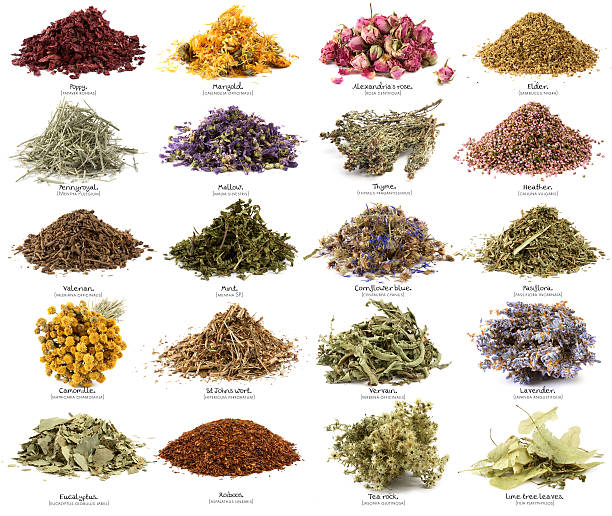Ayurveda word comes from Sanskrit. It is the oldest healing system. According to Ayurveda, the mind is the source of the body, just like a projector is the source of a movie. Digestive capacity is directly connected to the mind. The concept of nutrition according to Ayurveda is completely inverse to that of modern science. The basic difference is that Modern science counts the nutrients available in food, whereas Ayurvedic Nutrition Principles counts the nutrition that a person can actually absorb from the food. And therefore, we are not what we eat.

According to Ayurveda, we are WHAT WE ABSORB!!!
That’s why, if we are not able to absorb any nutrition from a food substance, it is as good as plastic for us, no matter how many nutrients it might contain.

Unfortunately, most people suffer from deficiency disorders today. Logically, deficiency disorders should occur in a poor population who do not have access to proper nutrition. But, surprisingly, most of these deficient people have ample access to nutritious food. They might even be obese. So, what is the reason for deficiency in them? The only logical reason for deficiency disorders in most such cases is not the lack of nutrition but the inability of the individual to absorb the nutrition present in the food.
Therefore, the concept of nutrition in Ayurveda is very similar to the concept of learning in children. Learning does not depend on books or any external resource. It depends on curiosity, the hunger for knowledge, and a prejudice-free ability to assimilate new experiences. In the same way, the nutrition that we might receive from a food substance depends entirely on two factors – digestive capacity and the rate of absorption.
A few decades back, there was no concept of bioavailability. However, now it is growing as a completely indispensable factor for proper nutrition. According to the Principles of Ayurvedic Nutrition, the ease of digestion of a food substance depends on two factors – the strength of the digestive system of the individual and the bioavailability of the substance.
Let us look at the concept of bioavailability in Ayurveda –
Bioavailability – The Mother of Nutrition
The concept of bioavailability is ingrained in the very basics of Ayurveda. Bioavailability is the reason why Ayurveda suggests soaking the almonds overnight and grinding them to a fine paste before consumption. Bioavailability is the reason why cardamom, saffron, and clove are added to most of the Indian sweets. Ayurveda has an extensive knowledge base on bioavailability and different factors that affect nutritional absorption.

All Ayurvedic medicines are based on the concept of bioavailability. The complicated combinations of multiple spices were formulated by the ancient seers to ensure maximum bioavailability even to the unhealthiest person. Enhancement of bioavailability is the reason why Chawanprash contains more than 64 unique herbal ingredients!
Digestive Capacity – Above Bioavailability
However, there is another factor that over-rides the bioavailability of a food substance. It is the digestive capacity of the individual. Let alone bioavailability, great digestive power can even make up for the lack of food supply. And that’s why I believe that God helps the poor. Because the poor with excellent digestive capacity can absorb better nutrition from a single banana, than what a rich person with digestive disorders might absorb from his seven-course meal.

Excellent digestive capacity is the factor that makes up for the lack of bioavailability in all food items.
Let’s look at what Acharya Charak says about the relationship between digestive capacity and nutrition.
Matrashi syat | Charak Samhita
This crisp sutra contains a whole world of meaning inside it. The word “matra” means the amount or “the proper amount”.
- Therefore, digestive capacity is not a stand-alone factor that works in isolation. It is dependent on the amount of food intake.
- This sutra signifies that the digestive capacity is inversely proportional to the amount of food we eat, up to a certain point.
- If we eat more than or less than the proper amount, the digestive fire suffers.
- If we starve or eat less than the proper amount, the digestive fire burns the internal tissue and gradually grows weaker. We can compare this state to a fire that dies because of a lack of fuel or firewood.
- If we eat more than what is appropriate, the digestive fire becomes burdened and again weakens. We can compare this stage to a fire that dies because of heavy logs of wet wood placed on it.
- For the above reasons, BALANCE or Samya is the most important term in Ayurveda. Not too much, or too little – but appropriate or BALANCED.
Balanced Meal
It is very interesting to note that there is no specific or general balanced meal according to Ayurveda. The appropriate meal again depends on multiple factors like
- Age
- Body Type
- Quality of Hunger
- Digestive Capacity
- Exercise or manual labor
- Season
- Physical Status (weak/tired/rested etc.)
- Mental Status (stressed, anxious, peaceful, relaxed, etc.)
- Disorders and many more
Mental State – Above and Beyond Digestive Capacity
Even modern science acknowledges the deep negative impact of the sympathetic nervous system or the emergency response system on the overall digestion quality. It is scientifically proven that stress, anxiety, and other negative emotions can severely retard the digestive process and create toxins in the body. Therefore, mental state is a factor that is considered to the above and beyond all other factors in terms of nutrition.
Therefore, if you really want to absorb the proper amount of nutrition from your food, be grateful and happy for the food; go for a MEAL-TIME PRAYER and it will ensure proper nutrition from whatever you eat
Conclusion
If you want to receive the best nutrition from your diet, you do not need to pour down exotic grains, expensive dry fruits, or health supplements in your body. Instead, focus on –
- Eating the right Ayurvedic combinations of food,
- Avoiding virrudhahaar or incompatible food combinations
- Eating simple, local, seasonal and organic food
- Eating with a stress-free and grateful mind!
Please consult a doctor or dietitian before you make any dietary changes based on this article.
